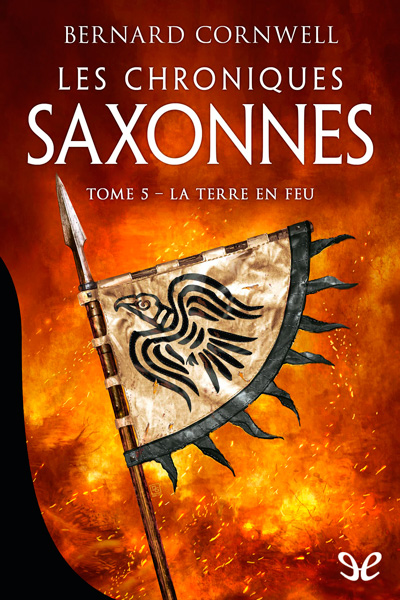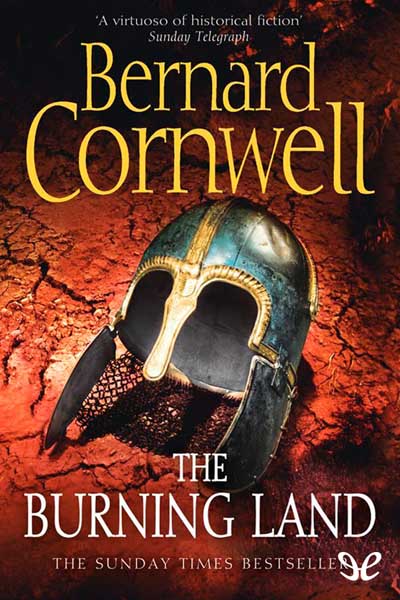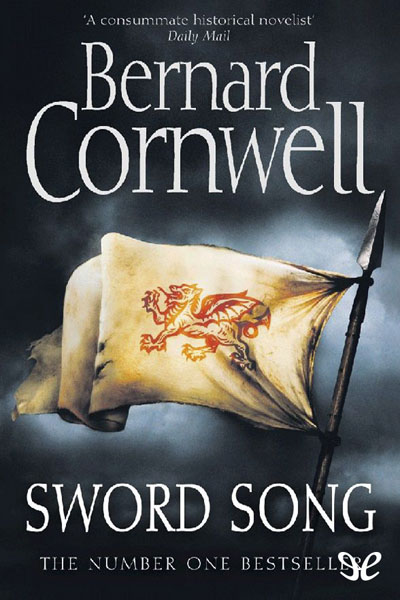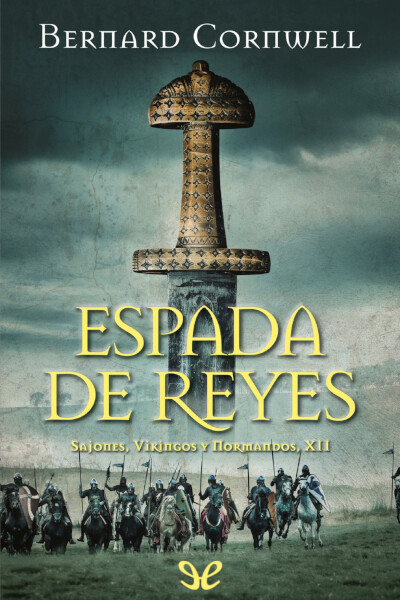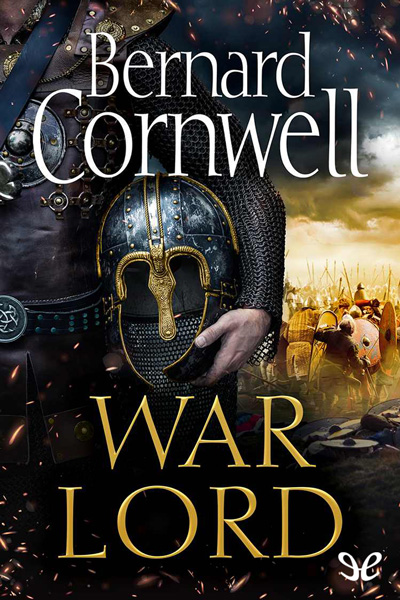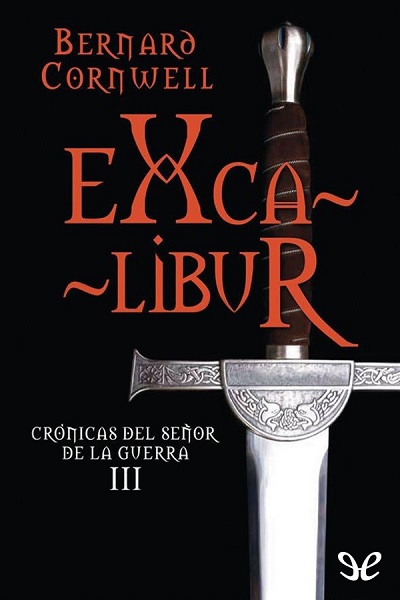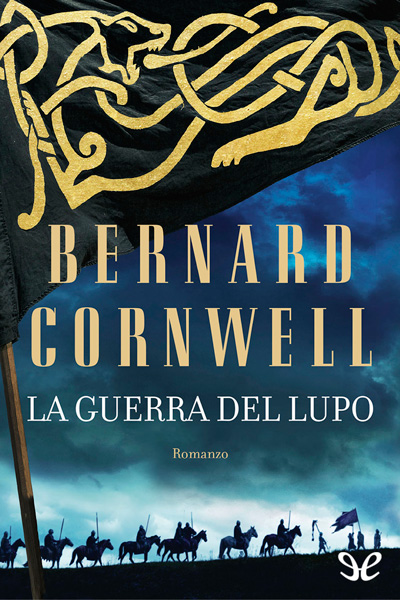oleebook.com
El diablo de Sharpe de Bernard Cornwell
de Bernard Cornwell - Género: Aventuras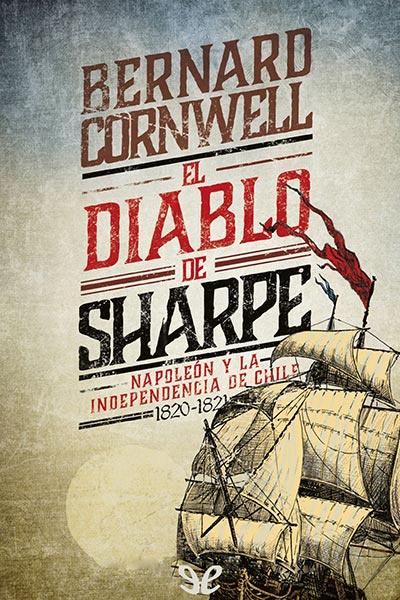
Sinopsis
Napoleón y la independencia de Chile, 1820-1821
El teniente coronel Richard Sharpe, veterano de las guerras napoleónicas, vive como agricultor en un tranquilo retiro desde la batalla de Waterloo, sucedida cinco años antes. Pero ahora, una vez más y sin preaviso, debe atender una misión peligrosa, que supondrá además para él una batalla moral. Don Blas de Vivar, capitán general de la colonia española de Chile y viejo amigo de Sharpe, ha desaparecido sin dejar rastro. Junto con el intrépido irlandés Patrick Harper, Sharpe se embarca en un arriesgado viaje que lo llevará primero a una entrevista inesperada con Napoleón, y luego a Chile, una tierra llena de corrupción y revuelta. Pero cuando la fortuna lo conduce a manos de Lord Cochrane, el legendario genio rebelde, comienza el verdadero combate. Por tierra y por mar, Sharpe se enfrenta a probabilidades imposibles: no sólo debe encontrar a Vivar, sino sobrevivir en un momento en que la tiranía gobierna, la injusticia abunda y Napoleón vuelve a acechar en el horizonte, ansioso por reavivar la guerra e incendiar la paz.
Libros Recomendados - Relacionados
Reseñas Varias sobre este libro
A surprisingly sharp-written later novel in the long-running Sharpe series!
Stop, stop...I need to apologize for that horrible previous line.
I'm sorry.
Okay, continue:
I didn't expect much from Sharpe's Devil, because the war is over. The very basis for these novels' existence is gone. Napoleon has been defeated and it's time for old soldiers to go home.
That's just where former British Army officer Richard Sharpe is when duty calls yet again. The wife of an estranged friend desperately wants to know what's become of her husband and Sharpe agrees to be her errand boy. And of course his sidekick Patrick Harper comes along too, because why the fuck not.
Okay, so the premise isn't rock solid, but Cornwell's writing is sharp (damn it!), the plot is engaging, the history accurate and the action is on point (just be happy I didn't say "on fleek"). Following history, we're off to Chile, where post-Napoleonic War Spanish and British warmongers are tearing up the country amongst the poor natives.
Many a bored ex-serviceman of the European theater took his talents to South America in the early-ish 19th century in search of gold, power and adventure. Lord Thomas Cochrane, the famous/infamous British naval captain writers Forester and O'Brian based the heroes of their stories upon, played a big roll in the Chilean rebellion of this era. Cornwell teams Sharpe up with Cochrane and even develops a nice scene with his fictional hero and Napoleon himself. Pretty daring of him to attempt a version of such a famous historical figure! Not only that, but to take Cochrane, use him and then reveal a damning bit of his personal history takes balls!
Perhaps most impressive of all is Cornwell's ability to crank out yet another exciting adventure from a series that by all rights should've been put to rest books ago!fiction historical-fiction history ...more43 s Rob511 136
Book 21 and the last in the Richard Sharpe series.
This was a fitting end to what has been highly entertaining series. The Napoleonic wars are over but there is just one last battle for Richard Sharpe and Patrick Harper to fight before they can both settle into a life of domesticity.
At this time Richard is a farmer in France and Patrick is a publican in Ireland.
Richard who is living with his de facto wife on her property in France trying to be a farmer on a farm that is falling apart and is in urgent need of repair. Problem for Richard is the renovations will cost lots of money, money that neither he nor his wife have much of.
But as chance would have it the wife of a high ranking Spanish officer, who was also a valued friend of Richard, comes to Richard asking a great favour. His friend has gone missing in, of all places, Chile. The wife is beside herself with worry and wants Richard to go to Chile to find him. Money is put on the table, lots of it, enough for Richard to undertake all the repairs to the farm. Richard, of course, could not do this without Patrick Harpers help. So once again our intrepid heros sail of for one last adventure, and what an adventure it turned out to be.
I learned a lot about things nautical in this book. For instance, I know now why a ships speed is measured in knots, something that will come in handy the next time I am circumnavigating the globe.
All in all I have thoroughly enjoyed all the Sharpe books and am a bit sad to be at the end but alas all good must end.
A recommended 4 star read.
historical-fiction18 s Lee (the Book Butcher)297 74
The last book in the expansive Sharpe series 24 books and short stories. Cant believe it's over. Well in all but a matter of technicality Waterloo was the true finally. This was more of a add on tale!
Don't get fooled, yes Sharpe meets Napoleon. but the devil in Sharpe's devil is a historically real Scotsman Lord Thomas Cochrane. A true swashbuckling rebel fighter from history. During the novel Cochrane is fighting the Spanish for the Chilean rebels where he comes across our hero sharpe. who is doing a favor/job (he's getting paid a small fortune) to find his old friend Blas Vivar from Sharpe's Rifles. Cornwell does a good job of giving Cochrane some shine. he is a lot sharpe but a bit crazy. Devil has many elements sharpe fans want. A right bastard of a bad guy in Governor-general Bautista. Harper is their and as always the Sharpe/Harper relationship is a highlight. plenty of action. Sharpe grunts and growl at everybody he encounters in classic sharpe fashion. There is no love interest, which i did not know how much I apricated in this adventure series. Problem is the narrative took a while to take off not really catching my attention until Cochrane shows up halfway through. Also Sharpe's character seems a bit off. Only way i can explain it is to compare it to the lethal weapons movies where they keep saying "i'm getting to old for this". Mostly taking place at sea since Cochrane is pretty much a Pirate. that may have been part of my problem since sea tales not really my thing. I barely got through Sharpe's Trafalgar. The best sea tale in the series.
Guess i can suggest this as a one off to see if you the sharpe series but as i said it's not the best representation of Sharpe's amazing character. seemed more a spinoff for a Cochrane series. Which would be fun!sharpe-series11 s Michelle560 33
Sharpe #21. Another re-read. The events take place five years after Waterloo.
Sharpe is called away from his farm in Normandy and sent on a mission to find Don Blas Vivar, the Spanish Count. He is one of Sharpe's friends from several books ago. Don Blas was last seen in Chile while trying to stem the governmental corruption and suppress a rebellion. The war for independence from Spain is brewing.
Sharpe and Harper come across the historical figure of Lord Thomas Cochrane. Historically accurate, Cochrane's attack on the Chilean port of Valdivia was accomplished in record time. There were five forts plus a central citadel at Valdivia. All of them fell in a rapid succession. That was a good section of the book. I also enjoyed reading about sailing around Cape Horn. So much so that I spent a ridiculous amount of time reading up on that treacherous sea route. I wouldn't sail there if you paid me!
I always enjoy the books in this series, but this wasn't my favorite of the bunch. There weren't as many Sharpe/Harper conversations. (There were still some good ones, though.) There weren't any Riflemen. It was a completely different setting with new supporting characters. There was no Wellington vs Napoleon. This was just too different from the rest of the series.
That said, it's still a solid four stars.
13 s Jim1,220 73
This is the 21st entry in the Sharpe series by Bernard Cornwell--and the last in the series. But I'm not sad about that, as I think I still have three Sharpe books to read! I have been reading them out of chronological order and I don't think that detracted at all from the pleasure of reading these books.
I've enjoyed this series since I began reading it in 1987. They're great stories with a lot of action and based on solid historical research. I've always d Cornwell's Historical s at the end where he explains where he deviated from the truth. I appreciate that. Of course, we have the towering figure of the rifleman Richard Sharpe, who has fought in India, then Spain and Portugal in the Peninsular Campaign of the Napoleonic conflicts and on into France, and, finally, he is in Belgium for the Battle of Waterloo. Fortunately (for Americans!), he did not serve in the War of 1812! And, in this the final book, Sharpe finds himself in the middle of a war in South America, in Chile. Even with the long Napoleonic Wars over and Europe returned to peace, Sharpe cannot stay out of combat!
The story is that Sharpe decides to go to Chile to search for an old friend from Spain who has disappeared in the Spanish colony of Chile. Arriving there with his sidekick, Patrick Harper, he sees that it's as dangerous a situation as any he has ever been in. A brutal governor is controlling a last stronghold in Chile against the rebels fighting for an independent republic. You can bet which side Sharpe and Harper will be on.
I have to say the last fifty pages couldn't be more exciting--and all based on an incredible actual battle that took place.
Interestingly enough, Sharpe visits the island of Saint Helena and meets a certain exile there by the name of Napoleon. A very nice touch there....so it's the last of the series and, as far as I'm concerned, one of the best of the series. Can't Sharpe have at least one more adventure? Anyway, I still have those three books of the series to catch up on!10 s Graham1,309 64
If SHARPE'S WATERLOO was the rip-roaring climax to Bernard Cornwell's series of Napoleonic War novels, then SHARPE'S DEVIL is the action-packed epilogue. The story, which is set five years after Waterloo, involves Sharpe's run-in with the Emperor himself and subsequent adventures in the Chilean War of Independence with Spain.
I won't spoil the story, which was completely unknown to me before I started reading, only to say that Sharpe fits it a glove. Okay, so it's a little odd that he's not actually soldiering here - and Harper's rapid ageing comes as something of a shock - which means Cornwell is forced to adopt a mystery template at the outset. After a while, though, we're in familiar Sharpe territory with brutish enemies, sinister conspiracies afoot and all manner of warfare, both on land and at sea.
My only complaint with this book is its relative shortness; it feels the shortest Sharpe novel yet. I wanted more. In every other respect, it's a fantastic read. The action scenes, which dominate the storyline, are better than ever and the last fifty pages or so are breathlessly entertaining; rest assured that the Sharpe series ends on a real high point with one of the most purely entertaining of the stories yet. The inclusion of real-life naval hero Thomas Cochrane is the icing on a thoroughly perfect cake.
My only disappointment is the void that's now left after over 7 years of reading a new Sharpe novel at regular intervals. The good news is that I have plenty of other unread Cornwell stories, as well as Sharpe-style adventure from different authors, so watch this space!19th-century historical war9 s Ben Kahn238 112
This is one of the three (out of a total of 23!) Sharpe novels that I've given below 4 stars. It's set five years after Waterloo and is completely superfluous and unneeded, and is the Sharpe book that Cornwell himself admitted is his least favorite since he said he could never figure out how to make it into a compelling plot. However, even with it being one of the worst Sharpe books it was still mostly engaging and had some great scenes, Sharpe meeting the exiled Napoleon in St. Helena before the plot moved on to Chile. In Chile though things just seemed to stall, and there wasn't much in the way of suspense or tension as Sharpe became embroiled in the Spain vs. rebel independence movement. The antagonists were weak, the action scenes were lackluster for Sharpe, and it didn't really go anywhere interesting. Cornwell was inspired to write this book after reading a nonfiction book about the Scottish adventurer sea captain Thomas Cochrane who helped the rebels defeat the Spanish, and I think it would have worked better as a Cochrane-focused standalone rather than as a Sharpe book where Sharpe is incidental to the proceedings.
I would strongly advise non-completionists to plan to skip this one and pretend the recently published Sharpe's Assassin is the true end to the series. That one is set right after Waterloo and is a much more emotionally poignant and meaningful end to Sharpe's story.
This book was written once the Sharpe tv show went into production and the tv people wanted Cornwell to start releasing more Sharpe books. He proceeded to write two of the weakest books in the series, Devil and Battle, before finding a new groove and inspiration a few years later going back in time with Tiger and moving onward chronologically from there until he caught up to his first releases. These two books really do seem to be Cornwell forcing the issue when he didn't have a strong story to tell, but even so they're still quick and breezy, and spending time with our lovable rogue Sharpe is always nice even when he's not embroiled in a particularly compelling story.historical-fiction7 s MarkoAuthor 13 books17
It's taken me years to read through this series in chronological order (I was reading other stuff as well - I'm not _that_ slow a reader!). The road has been bumpy to say the least, as it included Cornwell's later additions to the storyline (stories inserted into the gaps between his original series) that were almost all of them disappointing. Not that the original series was without fault either, but it included quite a few very enjoyable tales.
The Devil begins with Sharpe's meeting with Napoleon Bonaparte himself, in an episode that seems very forced, but then continues with Sharpe's trip to Chile with his friend Harper to find out the fate of an old friend. Once in Chile, they encounter the usual difficulties, though Cornwell doesn't fortunately succumb to the usual "someone beats Sharpe up, makes him miserable and then allows Sharpe to get back at him in the end" plot line that is familiar from some of the weaker novels along the way.
We get to meet Cochrane, a soldier similar to Sharpe with his mad luck, but actually a historical figure whose stories deserve to be known. Harper tags along with nothing to do, other than to drop a comment every now and then, but I guess this would not be a Sharpe novel without him.
Cornwell makes a couple of confusing mistakes when describing action on deck (e.g. someone slides down the ratlines to get onto the deck... the ratlines are actually horisontal ropes on the shrouds that sailors can climb, so you cannot really slide along them that easily), but most readers will probably not catch them.
Overall, this is an enjoyable finale to the series that I'm happy to have read. It was actually the last line of the historical notes at the end that really ended the story for me - I wish Cornwell had bothered to expand upon it a little bit more and had included it in the actual story.5 s Rithun Regi98 6
Not upto the same level as the earlier Sharpe books. However it has one silver lining of painting a historical picture of South America in its early years of struggle to escape the shackles of Spanish tyranny. Harper and Sharpe as usual are at their high levels of camraderie while the conversations with Napoleon shows the charisma of an emperor dethroned. Cochrane is also a very interesting character and this too was a positive from the book.4 s Clemens Schoonderwoert1,165 106
**Should Read as 4.5 Stars**
Read this book in 2006, its the 22nd and I think the final part, chronologically, of the marvellous Richard Sharpe series.
This tale is set in the years AD 1820/1821, five years after Waterloo, and Richard Sharpe in retirement in Normandy, and enjoying life in peace.
While in retirement Sharpe is confronted by the wife of his old friend, Don Blas Vivar, this friend of his is supposedly gone missing in Chile and is now reported dead, but the Don's wife refuses to believe and asks Sharpe to investigate this case.
Reluctantly he travels, with his old comrade, Patrick Harper, to South america, stopping at St Helena to visit an old enemy of theirs, the fallen Emperor Napoleon, where Napoleon will reveal some truths about his treatment and fears for his life.
When arriving in Chile, Sharpe and Harper don't what to expect, but what they will get is treachery and deceit from various sides, and in this environment of mistrust and death, they must overcome these dangers and somehow free the Don and get away from Chile safely and in tact to live for another day.
Very much recommended, for this is a very thrilling last episode of a terrific series, and that's why I to call this book: "A Very Enjoyable Sharpe's Final Mission"!3 s Calzean2,646 1 follower
Book 21 in the chronological series, book 11 in the original set written. Napoleon is exiled in St Helena, the old soldiers are dispersed around the globe trying to make a living and Sharpe is happily farming in Normandy. An old friend arrives and he and Harper are dragged off to Chile to find an old mate. On the way they visit Napoleon, of course. In Chile he finds a new nemesis and a new ally in an banished Lord Cochrane who is fighting with a small group of rebels to remove Spain from their country. Cochrane was a real person and his exploits seem to make Sharpe and his escapades quite believable.
Cornwell has great fun knocking politicians, lawyers and the church. He also shows that ex-soldiers were pretty well ignored after the war (has anything changed).
Overall this was a great series. Exciting, history bought to life, a hero who lived by his values, many impressive women willing to cast aside the shackles of society, a cast of baddies, a bit of humour and a bit of philosophy. What will I do now without Richard Sharpe?author-england culture-chile culture-england ...more3 s C.W.158 8
A couple years ago I was introduced to Cornwells writing via a show called The Last Kingdom. It was so well done with excellent acting and increasingly better production with each series. After learning the show was based on books, I quickly learned it was only a glimpse into the real story behind that series and his writing as a whole. We all know the book is almost always better.. right?
Anyway, here I am today with a few books left to complete in Cornwells entire library (Excalibur, and a couple in the Starbucks series), and Im wondering where will I go from here?? Cornwell has set the precedent incredibly high... maybe Ill just start all over again. The only way to cure my melancholy of completing the end of the Sharpes series? READ ; )3 s David21
Excellent historical novel.3 s David Hull289 3
Excellent! Hopefully, Mr. Cornwell will continue to add further books in this wonderful 'Sharpe' series.3 s David865 19
The final (*sniff*) of Bernard Cornwell's Sharpe books, this is set 5 years after the battle of Waterloo (so, in 1820) and sees Richard Sharpe - now happily settled and living with Lucille in Normandy, and his particular friend Patrick Harper (now running a bar in Dublin) off to Chile in a quest to find an old friend (from all the way back in Sharpe's Rifleswho is missing, reported dead - a report his wife refuses to believe.
While at first it seems that the 'pit-stop' in Saint Helena to meet/gawk at the defeated Emperor Napoleon - pretty daring of Cornwell to put such a famous historical personage in the novel! - is just that, this actually later proves to be an essential part of the plot: I'm not going to give anything away by saying how!
Bit sad that the series is finished now; I guess I'm just going to have to go back and (re)read them all again, as I have been doing over the last couple of years!2 s Alexander Theofanidis1,131 92
It's a bittersweet moment when you realise that after 2 months, all 22 Sharpe adventures are behind...
Sharpe and (an even bulkier) Harper set sail for Chile in order to track down a friend gone missing, while en route they visit Napoleon on St. Helena, his place of exile. (Really loved the scene with the two former enemies speaking, Cornwell has a great knack for giving us great moments/scenes of his heroes meeting historical figures). As a favor to Napoleon, they carry a seemingly harmless gift with them -one that embroils them in a web of conspiracy and danger.
Of course, things are never are they seem to be.
Sharpe and Harper are apprehended, sent back, saved ly lord Cochrane (very vivid and enjoyable character in the book, as he probably was in real life) and sail back to Chile...
No spoilers, just a big "THANK YOU MR. CORNWELL!" for this wonderful journey (22 books, 22 years). Shit, my eyes are moist right now...
Edit: And now a 23rd book is added...2 s L.M. MountfordAuthor 31 books1,192
This is a big one for me... I have now read/listened to every Sharpe Novel.
Unfortunately, it is far from Mr Cornwell's best and as i read it i get the sense he was writing it to fill a publisher's contract or to meet a deadline as there are some notable contradictions to the other Sharpe books, especially Trafalgar. The storyline is a little flat at times and the villain is weak, but the much of what's featured in the pages is a very historically accurate account of the loss of Spain's last colony in central America.
I finished it in two days though so read into that as much as you'd .2 s Nancy398 86
The quality of the Sharpe series was uneven overall and it ended on a sour note. Sharpe has entirely lost his wits as hes played for a sucker more than once while Cornwall drops clunky hints that all is not what it seems and the now obese Harper does nothing but complain about his kids and interject God save Ireland! and cross himself at intervals. Sharpes essentially passive throughout and his liking for the great evil on a personal level is not a good look. Better to have left it with Waterloo. 2020-read adventure audiobooks-2020 ...more2 s Geoff WoodlandAuthor 1 book32
The final of Richard Sharpe as well as the last in the collection that I own & that I have re-read during the Covid experience.
The complete set of Sharpe books, all old friends, to be confined to a carboard box in the garage, so as to make room for a new hero or perhaps individual authors as a change.
I found Sharpe's Devil to be a slow starter, but it did 'warm' up later and became a page turner near the end. bernard-cornwell2 s Mark Barrett140 2
This is not as powerful as earlier Sharpe novels. Cornwell clearly could not resist one last outing for his ageing hero, however it is a fairly predictable, at times rushed affair. I did enjoy the book, but it doesnt have the sense of urgency or tension as earlier escapades. The near misses are not near enough, the coincidences are overly coincidental and the ending is just too quick and too neat.
One for the fans, I think.2 s IainAuthor 7 books75
An outlier in the series, taking place 5 years after the climatic battle of Waterloo. It feels slightly tenuous that Sharpe and Harper would drop everything and head off round the world, but once there, the usual action and adventure is as enjoyable as ever, and there's a satisfying ending to the series at the very end.2 s Tony147
Audio version narrated by Rupert Farely.
This is the most unnecessary book in the series. It doesn't add or take away anything from the rest of the series and the best way to enjoy it is to treat it as bonus content. The Napoleon scenes were interesting. It was also interesting to see Cornwell dig into a new area of the world. I'll read anything this guy writes. audio2 s David53 2
A thoroughly enjoyable end to the Sharpe series2 s Rob Thompson545 48
"Sharpe's Devil" takes its place as an exceptional addition to Bernard Cornwell's esteemed "Richard Sharpe" series of novels, showcasing the author's unwavering expertise in crafting historical fiction. Set against the backdrop of the years 1820-1821, this enthralling tale follows the intrepid Richard Sharpe as he embarks on a perilous journey to South America with a singular purpose: to dismantle a powerful bandit network that threatens the stability of the region.
One of the most notable aspects of this book is its seamless blend of fast-paced action and meticulous attention to historical detail. Cornwell's authoritative command of the subject matter immerses the reader in the vividly depicted world of 19th-century South America, allowing them to witness firsthand the intricacies of the time period. From the cultural nuances to the political climate, every aspect is intricately woven into the narrative, creating an authentic and richly textured reading experience.
A hallmark of the "Richard Sharpe" series is the enduring appeal of its characters, and "Sharpe's Devil" is no exception. The protagonist himself, Richard Sharpe, continues to captivate readers with his unwavering determination and complex persona. Sharpe's adversaries, including the formidable bandit, ignite a palpable tension that permeates throughout the story, further heightening the stakes and the reader's engagement. Cornwell masterfully explores the depths of these characters, providing them with remarkable depth and complexity, which adds a compelling layer to the overall narrative.
In the broader context of the "Richard Sharpe" series, "Sharpe's Devil" stands as a distinctive entry due to its unique setting in South America. The exploration of this exotic locale introduces a fresh and intriguing twist to the well-established series, allowing readers to delve into a lesser-known corner of history. Cornwell's meticulous research into the country's culture and history enriches the story, presenting a nuanced and multifaceted portrayal of South America that goes beyond mere backdrop and becomes an integral part of the narrative fabric.
The allure of "Sharpe's Devil" lies in its ability to seamlessly combine education and entertainment. The fast-paced plot, brimming with unpredictable twists and turns, makes it an absolute page-turner, leaving readers on the edge of their seats, eager to discover the fate of the indomitable Richard Sharpe. Furthermore, the historical accuracy and attention to detail ensure that readers not only embark on a thrilling adventure but also gain insights into the time period, fostering a deeper appreciation for the historical context.
In conclusion, "Sharpe's Devil" stands as a shining testament to Bernard Cornwell's mastery of historical fiction. Through its gripping narrative, meticulously researched setting, and well-developed characters, this novel delivers an engrossing and enlightening reading experience. Both loyal fans of the "Richard Sharpe" series and newcomers a will find themselves enthralled by this well-written and action-packed masterpiece. If you are seeking a captivating adventure steeped in historical accuracy, "Sharpe's Devil" is an absolute must-read.2023-challenge audio fiction ...more1 KatieAuthor 2 books46
A pretty solid book to end the chronological Sharpe series on (so far!). Although it didn't feel very 'Sharpe'-ish (I had this issue with Assassin and Ransome as well; the post-Waterloo ones lost the mood a bit), I enjoyed the change of scenery and it did feel quite fitting to see Napoleon through to his end, after Sharpe had been fighting him for so long.
There is a lot more naval warfare in this one which is fine, I love stories set at sea...obviously but the unchronological way the series was written trips it up, leading to Sharpe saying things , 'I've never seen/been in a naval battle before!' Sharpe, you were literally at Trafalgar. And you also saw naval warfare during Siege. That's not too bothersome but Sharpe feels a bit out of his depth here, even though he matches Lord Cochrane's daring when they assault the fortresses with vastly outnumbered forces. But 22 books in, I *know* these attacks aren't going to be suicidal, no matter how impossible they sound. Sharpe always wins, or finds a way out.
As for Lord Cochrane himself, it's always kind of strange to have a well-known historical figure kicking about as a main character. Yes, I know I know Wellington has been in it since the beginning but always sort of...in the background. Cochrane was front and centre here alongside Sharpe and idk, I didn't warm to Bernard Cornwell's characterisation of him. He was just a bit irritating after a while, and I don't think Sharpe ever really came to him which influenced my view of him too.
However, there were some nice political machinations going on throughout it (for more of that, read some of the later Aubrey-Maturin novels which deal with this rebellion in Chile too!) and the twists were pretty good. Nice to read something with a bit more depth in it after going through Assassin as well, which was...very basic.
The best scene, I think, was when Sharpe finally came face-to-face with his old enemy, Napoleon. I thought that was a really well written and engaging prologue. And a long time coming!
So, there we go. I've read all of the Sharpe novels currently published! They definitely have their issues (very similar plots, not a single well written or interesting female character) but they are easy reads and move along pretty quickly. And there are some great books in the series!
And I also have to thank Bernard Cornwell for so frustrating me with his tantalising glimpses of intriguing subplots (*cough* bi Sharpe *cough*) that he plunged me into writing more of my own historical fiction!historical-fic1 Jeffrey646 11
I kind of hate to come to the end of the Sharpe novels once again. I enjoyed going through the soldiering life of Richard Sharpe. For anyone interested in Wellington, the Raj, Napoleon, or the Peninsular Campaign, these novels are delightful (and reasonably accurate) pieces of brain candy.historical-fiction napoleonic-wars1 Márta Péterffy201 7
A Sharpe sorozat záró része, ezeket csak filmen láttam eddig.
Itt is van valóságos alap, azaz történelmi személy és egy nevezetes cselekmény.
Ezt a könyvet találtam itt róla:
https://www.goodreads.com/book/show/1...
A korábbi részek a napóleoni háborúkról szóltak.2 s Paul102 1 follower
.1 Ed896 118
As the saying goes, "All good things must come to an end." The Richard Sharpe series certainly qualifies. This is volume 21 if you list them chronologically, although it was the 13th he wrote.
Many years ago, I picked this book up at a used bookstore and read it long before I had any idea who Bernard Cornwell was or Richard Sharpe, either. At the time, I though it was a pretty good book but it didn't motivate me to pursue Cornwell's offerings reading Stonehenge did many years later.
I've now managed to finish the Richard Sharpe series, The Starbuck Chronicles, The Saxon Tales, The Holy Grail trilogy, plus a number of Cornwell's stand-alone offerings. The only disappointment has been the King Arthur trilogy which I'm not sure I'll ever finish.
It had been such a long time, that re-reading this story felt almost as if I was reading it for the first time. The plot is simple: Sharpe is asked to retrieve Don Blas Vivar by his wife. Don Blas, a Spanish nobleman and compatriot of Sharpe from the Peninsula Campaign, has disappeared fighting the rebels in Chile. Don Blas' replacement, Miguel Bautista, is a corrupt scoundrel at best. The story unfolds from there with Sharpe eventually hooking up with Sir Thomas Cochrane, the de-frocked British Admiral, now fighting with the Chilean rebels. There is also an interesting sub-plot involving Napoleon, in exile on St. Helena.
The characters are all very Cornwellian and the action is, as usual, extremely well described and exciting. The historical references are accurate, including the parts involving Napoleon on St. Helena and Cochrane and the battle for Valdivia.
While not the best book of the series it was certainly a worthwhile wrap-up of this Napoleonic Wars saga. historical-fiction reviewed1 Phil398 13
Autor del comentario:
=================================

